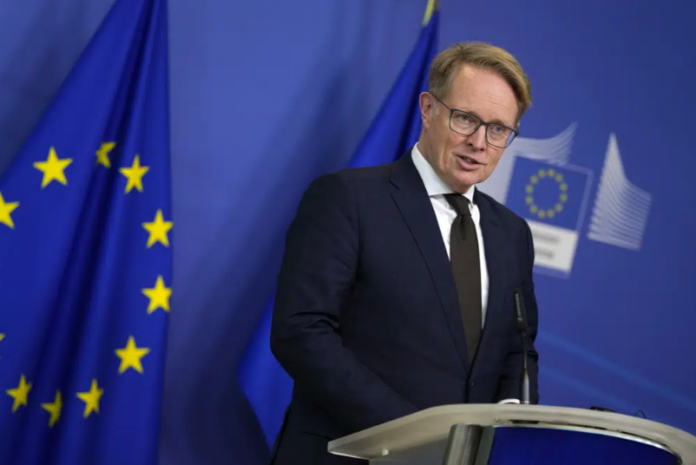The new executive director of European Union border agency Frontex pledged Thursday to ensure that illegal pushbacks of migrants trying to reach Europe wouldn’t take place under his watch, according to AP News.
Hans Leijtens was appointed as a replacement for Fabrice Leggeri, who resigned last year following media allegations that the agency was involved in that practice. A report by EU anti-fraud watchdog OLAF into Frontex later concluded that employees from the agency were involved in covering up pushbacks of migrants from Greece to Turkey.
Pushbacks — forcing would-be refugees away from a border before they can reach a country and claim asylum — are considered violations of international refugee protection agreements, which say people shouldn’t be expelled or returned to a country where their life and safety might be in danger because of their race, religion, nationality or being members of a social or political group.
“Pushbacks by Frontex officers are not legal. They are forbidden,” Leijtens said during a news conference with Ylva Johansson, the EU commissioner for home affairs. “I’m responsible for the fact that my people don’t participate in … pushbacks.”
Leijtens will start his new job on March 1.
Leijtens said “there is nothing secret about Frontex” and that he would promote a nothing-to-hide attitude while improving transparency and putting an end to “defensive attitudes.”
“We can’t do our work when we are not trusted,” he said.
Leijtens’ nomination comes as the EU’s 27 member countries struggle to make progress in discussions over a long-delayed overhaul of the bloc’s asylum system proposed by the EU’s executive arm more than two years ago.
The number of attempts by migrants to enter the EU without authorization reached around 330,000 last year, the highest number since 2016, the EU’s border and coast guard agency said last week.
Johansson said the increase is mainly due to the arrivals of citizens likely not in need of international protection, who need to be returned to their country of origin.
“Frontex is well equipped to actually support the member states,” she said, adding that the agency last year carried out the return of 25,000 people.
Johansson added that she will next week present a new strategy on returns next week before a summit of EU leaders in February. She also exhorted EU countries to step up their cooperation with Frontex for a better management of returns.
Johansson and Leijtens were also asked about reports from nongovernmental organizations, which argue that the use by Frontex of aerial surveillance to enable the EU-trained Libyan coast guard to intercept boats carrying migrants makes the agency complicit in the abuse that refugees are exposed to once they are returned to Libya.
Johansson responded that Frontex’s priority is to save lives and should obviously warn coast guards if they spot a vessel in danger.
“When it comes to Libya, there is a special challenge because of the conditions in Libya,” she said. “That’s why we don’t want to leave people there.”
Johansson said that the EU is working with the United Nations and the African Union to make sure that refugees are taken out of camps located in Libya and resettled in better locations elsewhere.


